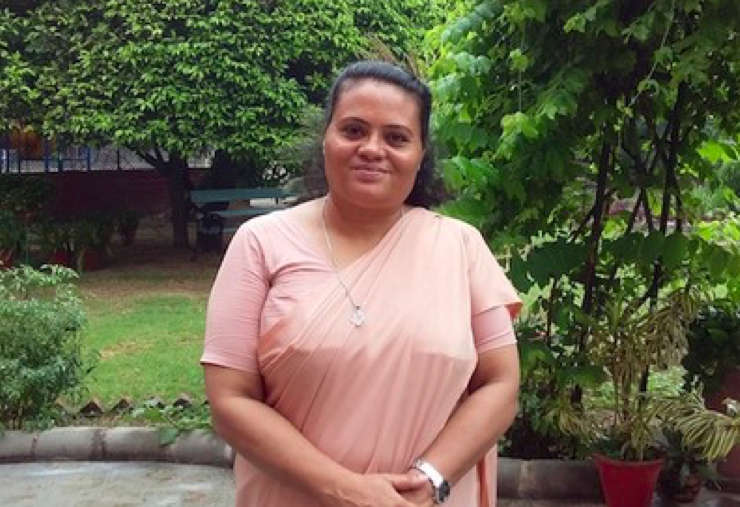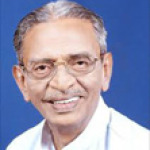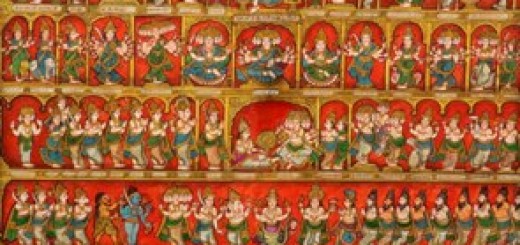Frees poor prisoners, Fights curse of caste – Nun excels in following Jesus

 dr. james kottoor (Chicago) “I was in prison and you visited me!” These words of Jesus struck us like lightning first when we saw the story of a nun visiting the prison to help out Dalits. Dalits are the ‘untochables’ and poorest of the poor in a caste dominated Indian society.
dr. james kottoor (Chicago) “I was in prison and you visited me!” These words of Jesus struck us like lightning first when we saw the story of a nun visiting the prison to help out Dalits. Dalits are the ‘untochables’ and poorest of the poor in a caste dominated Indian society.
It is precisely to give maximum push to this kind of thinking and action, stooping to serve to the lowly placed that Jesus emptied himself to a Cattle shed at birth and lived all three years of public life among and for the marginalized. It is also the reason why CCV calls itself the Cattle Class. For those intoxicated with Jesus and bent on following him (forget churchmen and multitude of churches, it is not only Christians who follow Jesus), there is no other option except to be one with the lowly placed in the Cattle class – the only legitimate class there can be in any church — in thought, word and action, even when they have all the wherewithal to live in comfort zones in the midst of luxury and affluence.
Think of a St. Francis or Budha! It is this mentality that prompts a Pope Francis to speak constantly of Land, labor and Lodging, thinking of the millions who are deprived of these basic needs and rights of humans. So he lives at St. Marthas in community, delights in self-serving his food, carries his own bag on journeys, hugs and kisses the deformed, visits old age homes to comfort them, drives around in ordinary car, constantly speaks of a ‘poor church for the poor’, exhorts his ministers to go to the peripheries leaving their comfort zones, busy himself every day with a word of comfort for the suffering migrants, flood victims etc., even at his age of 80.
“I have pity on the multitude” was another crie-de-ceor (cry of the heart) of Jesus seeing the hungry. It drove him to multiply bread. Only those who live, body and soul in the Cattle class, as one of the Dalits can feel their pain. That is what prompted Sr. Anastatia to take up the ministry to the poor imprisoned caught for petty offenses like theft but unable to pay even part of the enormous Rs. 50,000 needed for an initial bail application. She has already helped 800 to get bail application, a herculean achievement.
India has around 1,387 jails which locks up 418, 530 people most of whom are illiterates and from low castes. That is why CCV has started a campaign to wipe out casteism at least from the Catholic Church. Sr. Anastatia is a shining example and impetus for us CCV sold on our determination to stay put in the Cattle Class company of Jesus to fight tooth and nail against all made hierarchical classes in the Church, as well as the dastardly practice of India’s notorious Caste system.
Where there is a will there is a way. Evangelization par excellence is walking in the foot steps of Jesus, liberating the imprisoned, comforting the afflicted, feeding the hungry, healing the wounded, the deaf and blind, housing the homeless, teaching the ignorant, clothing the naked, answering infinite questions on social media, not just preaching an ill-prepared sermon to a half asleep audience in churches. Let many more imitate Sr. Anastatia and join the Cattle Class to give continuity to the manifold works of mercy Jesus was busy with during his 3 year public ministry. james kottoor, editor, ccv.
Please read below more about Sr. Anastatia in UCANews!
Nun helps marginalized – Remand prisoners in Delhi prison
Posted UCANews India, September 4, 2017
Presentation nun has special permission to enter the prison where she regularly offers legal help to needy inmates.
In the pic: Presentation Sister Anastasia Gill in New Delhi in his file photo. – ucanews.com photo)
New Delhi:
Presentation Sister Anastasia Gill is a beacon of hope for poor prisoners languishing in India's largest jail awaiting trial. The nun, clad in a beige-colored sari, is a familiar figure at Tihar Central Prison in the capital, New Delhi.
Sister Gill, a criminal lawyer, has special permission to enter the prison where she regularly offers legal help to needy inmates.Hundreds of them, mostly Dalits from a tribal background, remain in jail simply because they are too poor to find a lawyer or are too illiterate to file a bail application.
"They have no one to take up their cases," Sister Gill told ucanews.com. The 50-year old nun began the mission five years ago. After seeing the serious lack of awareness on legal procedures, she started 'role-playing' inside the prison to teach inmates about the legal and court and systems.
By acting out small scenes, the nun tells them where the judge sits and how the court proceedings work so that they do not lack confidence when appearing in a courtroom. She tells prisoners about their rights and how to present the facts of their cases to judges.
Sister Gill has helped 800 people to either get bail or be released during the past five years. The nun also appears in court for those inmates, often poor or abandoned by relatives, who cannot afford to pay for a lawyer. The fees of a private lawyer start from 50,000 rupees (US$781) for a bail application.
By the time trials are concluded, some families of defendants have to sell their homes. The nun said many prisoners had been locked up awaiting trial for longer than the sentences they faced if convicted for offences such as theft. This is why the issue of bail is so important.
Sister Gill said about 70 percent of some 14,200 people in Tihar Central Prison are accused of petty crimes. Some remain incarcerated even after being allowed bail because they are unable to raise the surety money. Data from National Crime Records Bureau for 2014 show that across India's 1,387 jails, housing some 418,530 people, 60 percent of prisoners come from lower caste backgrounds and 70 percent are illiterate. The prisons are also grossly over-crowded.
Young inmates could be sexually assaulted by older prisoners and their condition deteriorated if they remained in prison for a long time, the nun said. More priests and nuns were needed to help prisoners. Sister Gill said she started as a teacher in 1989, but had always felt that her real calling was to help the poor and the marginalized.
She completed her masters' in social work in 2000 and assisted self-help groups for women and in providing informal education for children. But the rape of a three-year-old tribal Catholic girl in the central Indian city of Bhopal in 2005, and the delaying of charges being laid, made her decide to obtain a law degree. The nun realized she needed to know more about the law in order to deal with such cases.
She secured a law degree in 2009 and worked with the voluntary Human Rights Law Network and began to visit people in the jail. In 2013, she joined the Delhi State Legal Services Authority, a government agency providing legal help to the poor. It was best to get into the government "machinery" and to work fearlessly, she said, adding that she is motivated by the smiles of freed prisoners.
Sister Gill was last month appointed as the member of Delhi Minorities Commission representing the Christian community. "My schedule in the commission is very tight, but the work for poor prisoners will continue," she said. An eight-member team of human rights activist lawyers consisting of nuns, priests and laity will continue to assist in the courts"Our vision is a new form of commitment through advocacy," Sister Gill said.

















Joseph Mattappally writes: Dr. James, thank you for the inspiring story of a determined nun and those powerful comments. The Great Sermon on the Mount should have been at the core of Christian Life. Instead, the present day Christianity appears to be struggling to maintain all the worldly glamour they envision. For the SM division, it is St. Thomas heredity that is more important, it is rituals that are in the centre; the worst side of it is their passionate indifferences with all other Rites of the same tree. It is a fact they exist on a few exemplary heroes living 'intoxicated with Jesus’, as Dr James puts it. It is intoxicating drugs of action that the community asks for, never soothing Halleloojaahs… supported by stunning Light and Sounds.